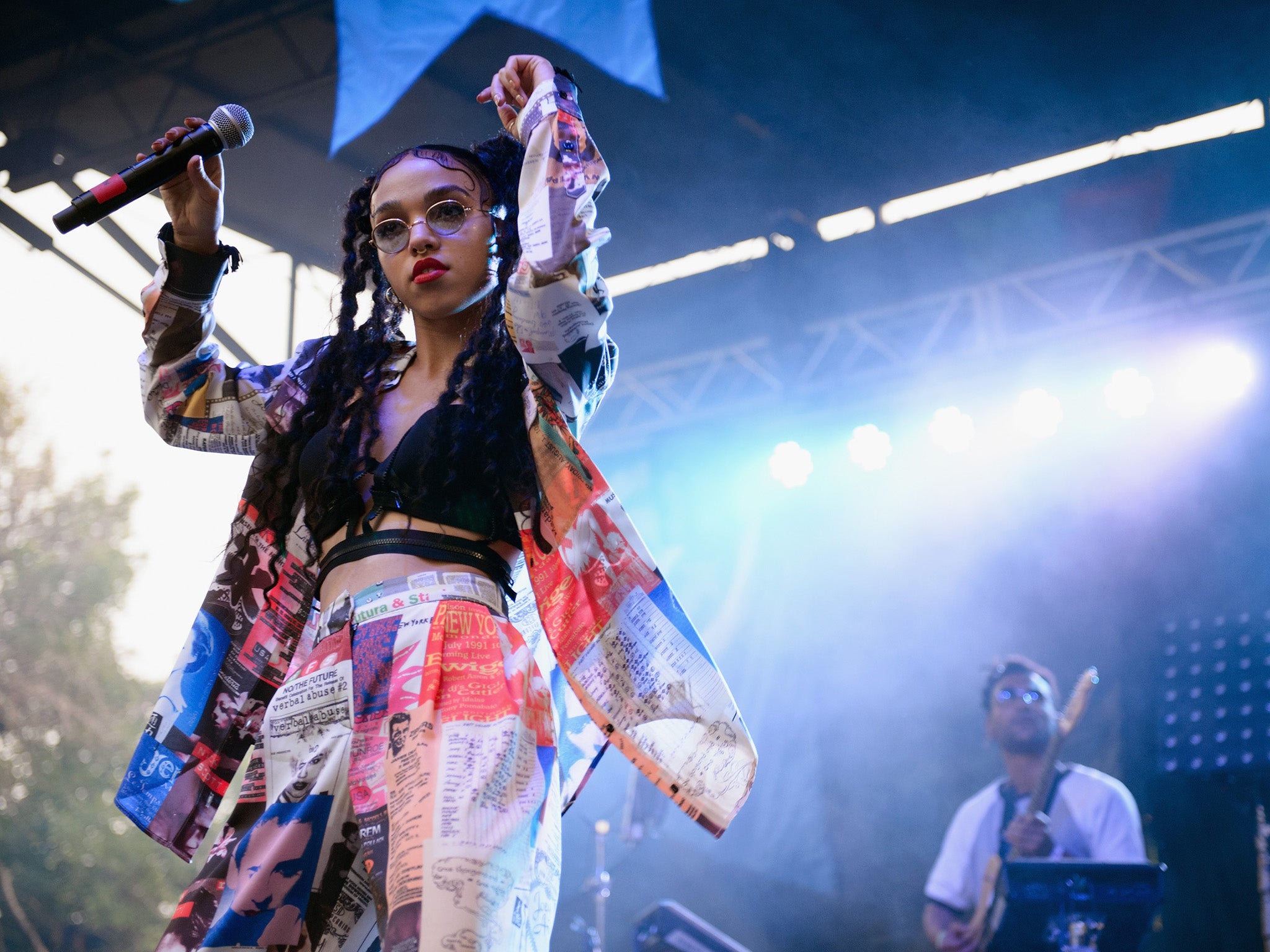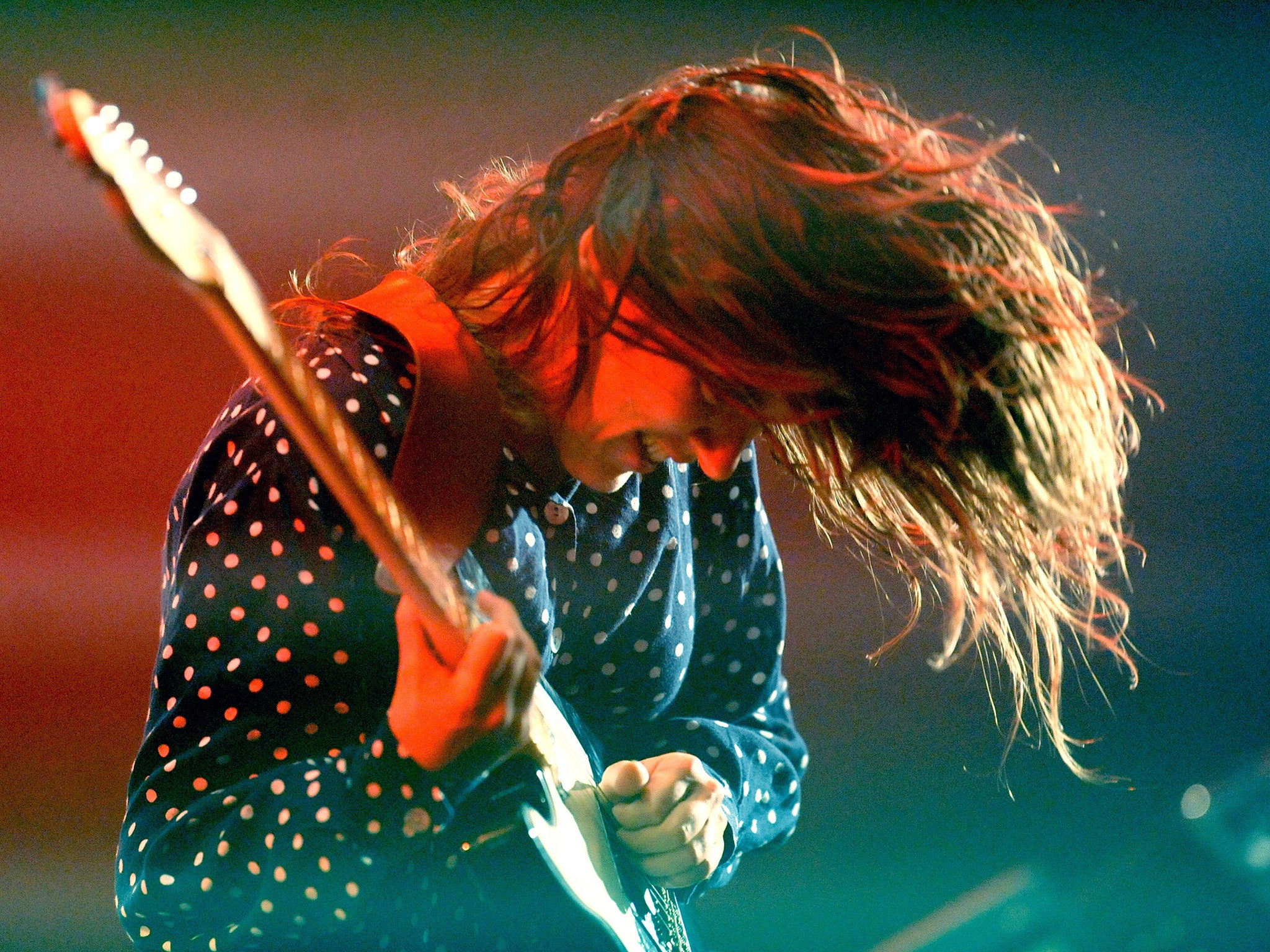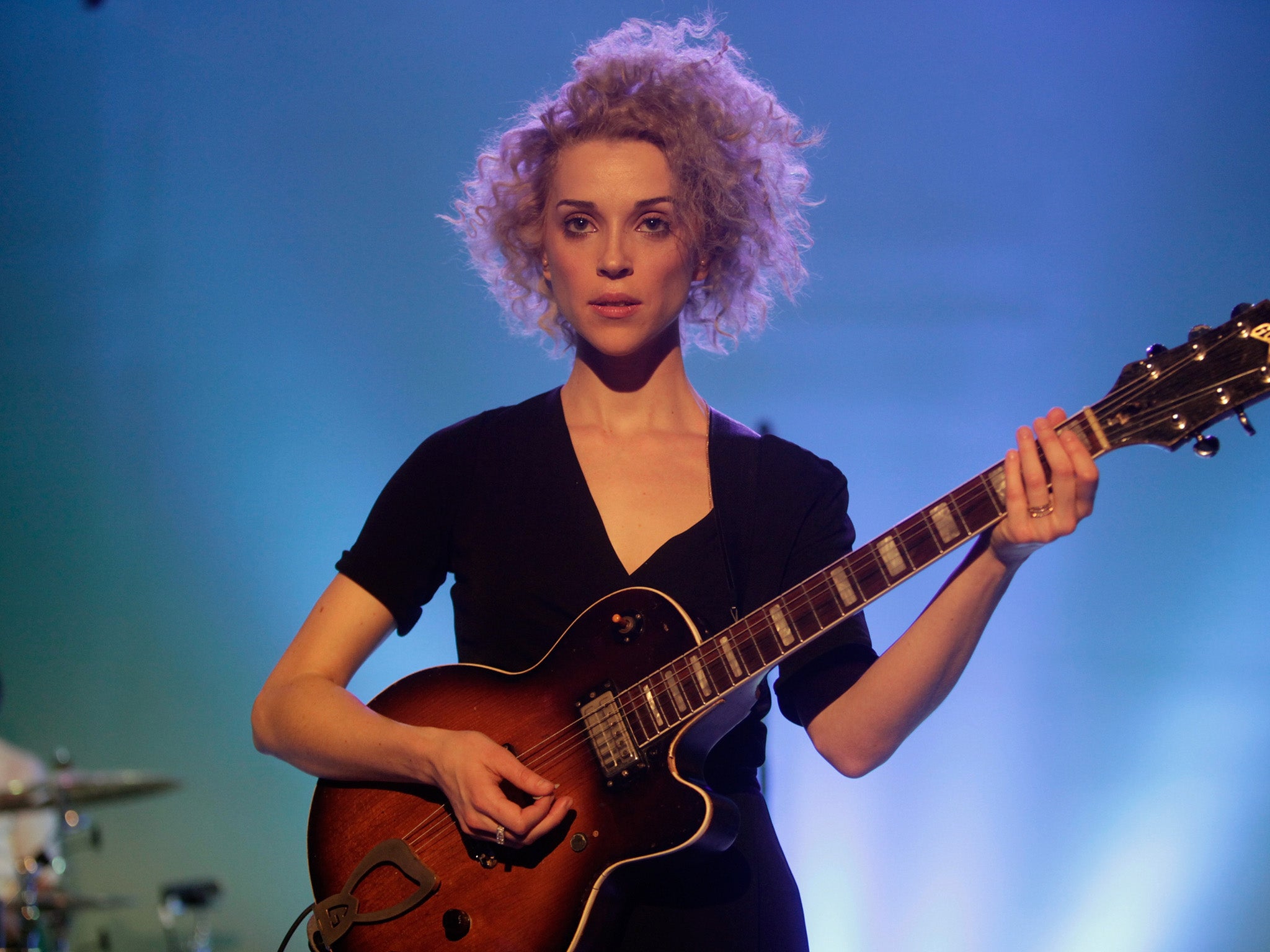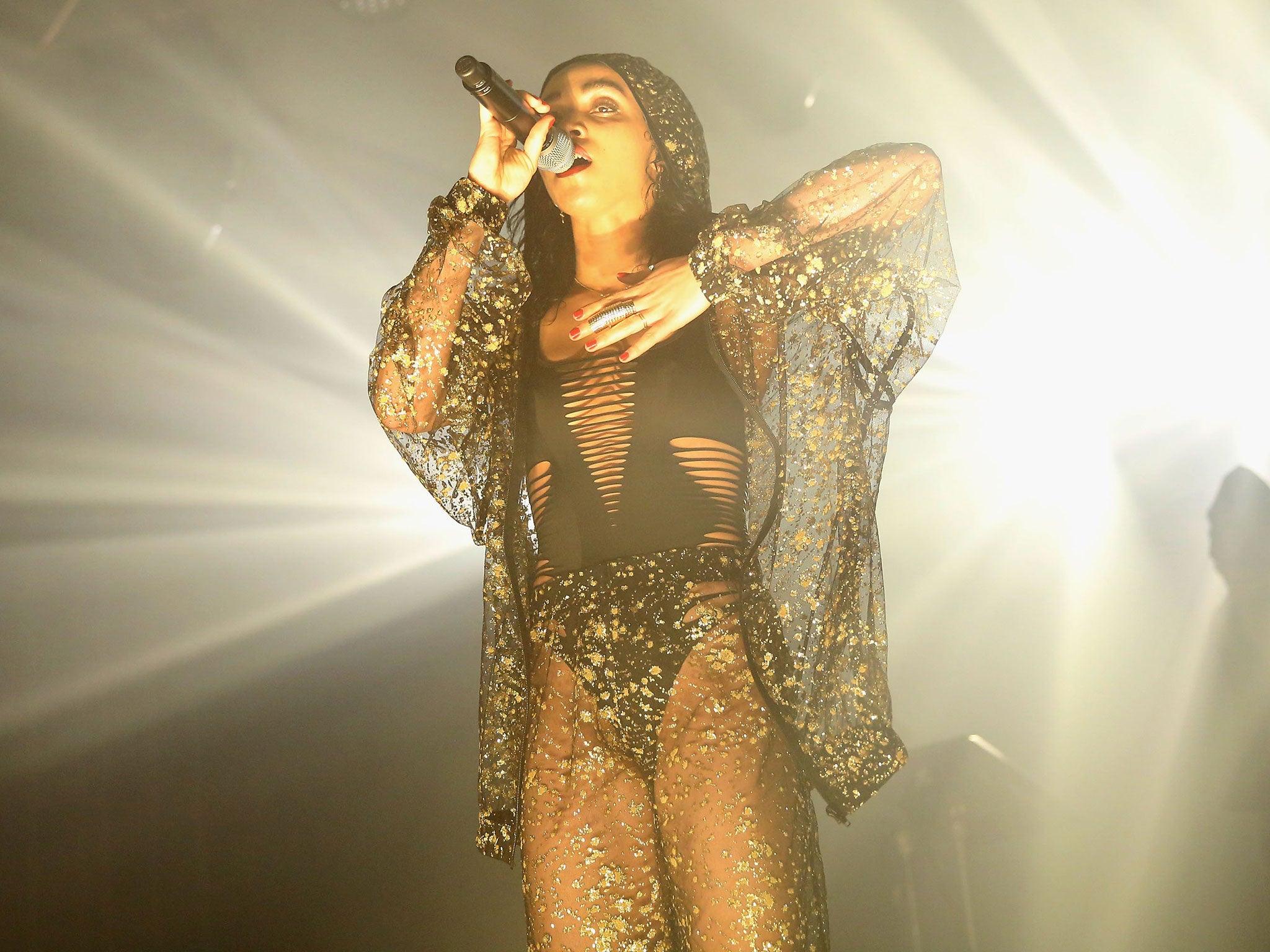Festival Females 2015: Where to see the women rock stars this summer
Even with male acts outnumbering female ones nine-to-one at the key summer events, it’s still possible to find the top female acts

Your support helps us to tell the story
From reproductive rights to climate change to Big Tech, The Independent is on the ground when the story is developing. Whether it's investigating the financials of Elon Musk's pro-Trump PAC or producing our latest documentary, 'The A Word', which shines a light on the American women fighting for reproductive rights, we know how important it is to parse out the facts from the messaging.
At such a critical moment in US history, we need reporters on the ground. Your donation allows us to keep sending journalists to speak to both sides of the story.
The Independent is trusted by Americans across the entire political spectrum. And unlike many other quality news outlets, we choose not to lock Americans out of our reporting and analysis with paywalls. We believe quality journalism should be available to everyone, paid for by those who can afford it.
Your support makes all the difference.As with flat-pack furniture, sometimes a visual aid is what’s needed to let you see what’s been lurking right under your nose. So it was for many music fans when, a couple of weeks ago, website Crack in the Road posted a doctored version of the Reading and Leeds festival line-up poster on Twitter, with all of the male-only acts removed.
There were nine names left. Out of 96. The gaping, lurid yellow holes were a horror, not least because they illuminated how easy it is to just stop noticing these things. But, this year, we’ve not been allowed to, thanks largely to the new wave of young, internet-savvy feminists who simply refuse to “calm down” over such issues as inequality and who, in more and more arenas of public life, are forcing people to re-examine the status quo. After the Reading and Leeds poster went up, similarly depressing images for T in the Park, Download and other major festivals soon appeared. There was a lot of blank space, and not the kind Taylor Swift would approve of.
Reading and Leeds festival boss Melvin Benn initially dismissed the row, telling Gigwise that, while there had historically been barriers to women joining bands or gaining success, there was “an abundance of opportunity now”. Later on, he clarified to NME: “The facts speak for themselves in terms of female acts that were available at that time… We can’t put a bill together based on gender, we can only put a bill together based on availability and appropriateness.” It was an argument echoed by many, male and female, across social media; that it should be about the quality of the music, not the gender of the performer that counted.

But then, if your male-to-female balance is 9:1, haven’t you already put together a bill based on gender, like it or not? It’s just that when it’s the dominant gender, it’s all too easy not to see it that way.
The ludicrous idea that there just weren’t enough female artists or female-featuring acts out there was one that rankled with many. The artists who’ve generated most discussion and excitement in the past 12 months, from Madonna, Lorde, Taylor Swift, Lady Gaga and Miley Cyrus to FKA Twigs, St Vincent, Björk and Sleater-Kinney, are women. So artist Phoebe Summers produced an imaginary line-up of only female artists or bands with women in them, which made a powerful point. With enough good, popular artists out there to easily fill a whole bill, are we really to believe that so many of them were busy that only a mere 10 per cent of the bill could be filled? And, moreover, that that’s been the situation for the past five decades?
The harsh truth, of course, is that people who book for large festivals are ticket-shifters first and foremost, not cultural curators or social subverters. If the status quo is that Foo Fighters sell, then Foo Fighters they will book. You will not get Björk to headline Reading and Leeds by shouting at Melvin Benn on social media (though you can, at least, make him aware there’s a demand out there to hear a different set of voices, so by all means keep doing it). Festivals are a much bigger business than they used to be in 1995, when Björk last headlined Reading, and the more money is involved, and the more big brands and business, the more incentives, bookers have to play it safe and protect investments. Sadly, we’re not in a world of fantasy festivals where you can just Photoshop a name on a poster. While festivals absolutely should adopt a degree of positive discrimination (history proves that if you leave it to meritocracy without intervention, little will change), it’s unlikely that the larger ones will, unless it’s in their financial favour.

So what can you do? Your part as a consumer: vote with your feet and give your money to the festivals that do make the effort: the more we prove that female headliners and female-heavy line-ups make money, the more the bookers will want a slice of it. There’s a market out there to support things like the Southbank Centre’s wonderful Women of the World festival of feminist talks, debates and performance or the worldwide Ladyfest festivals: the idea that there’s no market for a rock festival that’s at least something closer to a 50 per cent gender balance is just daft.
So maybe it’s time to put your festival money where your mouth is, Outraged@Tunbridge_Wells. To pass up another opportunity to see Dave Grohl and co grind out their nicest-guys-in-rock routine, and reward the festivals that are trying to make it better. Bestival has just announced a whole raft of female artists such as Kate Tempest, Charli XCX, Neneh Cherry and Lianne La Havas, curator Rob Da Bank pointedly noting: “Well whaddya know? There are shedloads of amazing people making some startlingly good music at the moment… from pop to left-field, soul to hip-hop and some ace DJs too, and look, lots of them are female! Whatever next?”
The boutique Festival No 6 in Portmeirion, Wales has managed to pull in big-name female acts like Grace Jones and Rae Morris alongside poet and rapper Kate Tempest. Field Day also has many female stage headliners, including Patti Smith, Savages and FKA Twigs; Green Man is headlined by St Vincent, while second headliner Hot Chip have a female drummer, and the next band down the bill, psychedelic crew Goat, are female-fronted. Latitude have Portishead, fronted by the wonderful Beth Gibbons, headlining one night, with Laura Marling and Lianne La Havas also on the main stage and many more female artists beyond that. If you feel like joining them in making music festivals less of a sausage-fest, here are some good places to start…
Taylor Swift and Florence and the Machine
Radio 1’s Big Weekend, Norwich, 23-24 May
Björk
Wilderness Festival, Cornbury Park, Oxfordshire, August 6-9 / Manchester International Festival, various venues, July 2-19
Courtney Barnett
Green Man, Crickhowell, Brecon, 20-23 August
Laura Marling
Latitude, Henham Park, Beccles, July 17-19
Patti Smith
Field Day, Victoria Park, London, June 6-7
St Vincent
Green Man, Crickhowell, Brecon, 20-23 August
Charli XCX
Bestival, Robin Hill Country Park, Isle of Wight, September 10-13
Neneh Cherry
Bestival, Robin Hill Country Park, Isle of Wight, September 10-13
FKA Twigs
Field Day, Victoria Park, London, June 6-7

Tahliah Barnett’s debut LP1 was one of the most arresting hits the UK has produced in ages, and her unsettling visual presentations and multimedia approach mean she’s an artist to be reckoned with. She’s producing, in front of an audience, seven short films at Manchester International Festival in July, but if you want more of a straight-up set of her sensual art-pop, Field Day is the place to do it.
LoneLady
Bestival, Robin Hill Country Park, Isle of Wight, September 10-13
Join our commenting forum
Join thought-provoking conversations, follow other Independent readers and see their replies
Comments